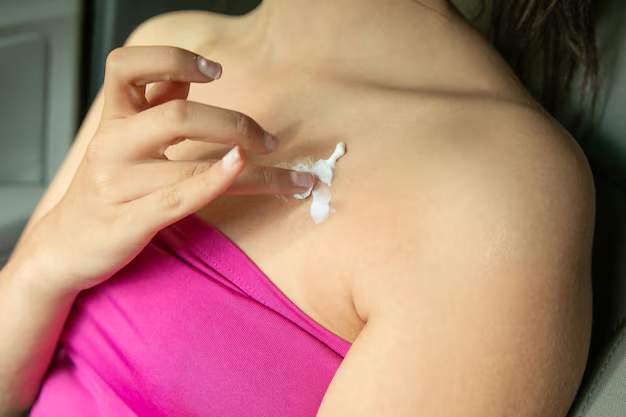Unpacking the Myth: Do Antiperspirants Cause Cancer?
It's a concern that has likely crossed the minds of many as they prepare for the day: do antiperspirants cause cancer? This common hygiene product, used daily by millions around the globe, has been at the center of ongoing debates and fear-inducing headlines for years. Today, we're diving into the facts, myths, and science behind this question to help you make informed choices with confidence.
Understanding Antiperspirants and Their Function
Before addressing the potential cancer link, it's crucial to understand what antiperspirants are and how they work. Antiperspirants are personal care products designed to reduce sweating. They contain active ingredients such as aluminum-based compounds that temporarily block sweat pores, effectively reducing moisture and odor.
How Antiperspirants Differ from Deodorants
People often use the terms "antiperspirant" and "deodorant" interchangeably, but they serve different purposes. Deodorants mask odor with fragrance and antimicrobial agents but don't address moisture. By combining both functions, many products are marketed as antiperspirant-deodorants.
The Origin of the Cancer Concern
The rumor connecting antiperspirants to cancer, particularly breast cancer, likely began circulating in the late 1990s. Concerns focused on several points:
- Aluminum-Based Compounds: Used to block sweat, there are claims that these compounds might be absorbed by the skin, potentially leading to DNA damage.
- Parabens: Preservatives used in some cosmetics, believed by some to mimic estrogen, a hormone linked to breast cancer.
- Proximity to Breast Tissue: The application of antiperspirants near the breasts has raised fears that chemicals may accumulate in breast tissue.
Exploring the Scientific Evidence
Aluminum and Cancer: What's the Link?
No current scientific evidence robustly supports the idea that aluminum in antiperspirants causes cancer. While studies have shown aluminum can be absorbed by the skin, the levels detected were too low to cause harm.
Key Findings:
- The National Cancer Institute (NCI) and American Cancer Society (ACS) have found no conclusive evidence linking antiperspirants to breast cancer.
- Research continues to assess the long-term exposure effects, but thus far, results have not confirmed a direct causative link.
Parabens: Separating Fact from Fiction
While some studies indicate that parabens can mimic estrogen, the amounts to which people are exposed from antiperspirants are minimal. Most modern formulas are either paraben-free or contain levels considered safe by health authorities.
Key Takeaway: The low levels present in personal care products do not seem to significantly impact breast cancer risk.
The Role of Genetics and Lifestyle
Cancer is a multifaceted disease influenced by a constellation of factors including genetics, lifestyle choices, and environmental exposures. Understanding your hereditary risk factors and maintaining a healthy lifestyle is more critical than focusing solely on the use of individual consumer products.
Alternative Products and Safety Choices
For those still concerned about traditional antiperspirants, there are alternatives and ways to minimize potential exposure:
Natural Deodorants
Many consumers opt for natural deodorants that typically forgo synthetic chemicals. While these might not prevent sweating, they can help mask odor with natural ingredients like baking soda, essential oils, and plant-based starches.
Ingredient Awareness
When choosing products:
- Look for "aluminum-free" or "paraben-free" labels.
- Read ingredient lists to understand what you're applying to your skin.
Greater Context: Other Health Implications
While the antiperspirant-cancer link remains unsubstantiated, there are general health tips for managing sweat and odor effectively:
- Stay Hydrated: Regular hydration can help reduce body temperature and sweat production.
- Appropriate Fabrics: Wearing natural, breathable fabrics aids in moisture management.
- Balanced Diet: Certain foods can increase body odor; maintaining a balanced diet contributes to overall body health.
Final Thoughts on Safety and Personal Choice
Every individual's health decisions are personal and multifaceted. Embracing a perspective that prioritizes informed choices over fear-driven reactions is essential. Understanding the balance between scientific evidence, personal values, and comfort is key to making the right decision for you.
Key Takeaways for Careful Consumers
In sum, the current scientific consensus is clear—there is no confirmed link between antiperspirant use and cancer. However, consumers have a variety of options available to them and can make choices that align best with their personal health goals and peace of mind.
Quick Tips & Takeaways 💡
- Myth Busting: No conclusive scientific evidence supports a link between antiperspirants and cancer. 🧪
- Ingredient Check: Prefer aluminum-free and paraben-free products when concerned. 🔍
- Stay Informed: Keep up with trusted health resources for the latest research. 📚
- Explore Alternatives: Consider natural deodorant options if aluminum worries you. 🍃
- Balanced Lifestyle: Focus on overall health management through diet, hydration, and skincare routine. 🥗🚰

Related Articles
- Are Breast Cancer Lumps Painful
- Are Chills a Sign Of Cancer
- Are Colon Spasms a Sign Of Cancer
- Are Lytic Lesions Always Cancer
- Are Polyps Cancer
- Can a Blood Test Detect Cancer
- Can a Ct Scan Detect Cancer
- Can a Dexa Scan Show Cancer
- Can a Gastric Emptying Scan Show Cancer
- Can a Lung Biopsy Cause Cancer To Spread
